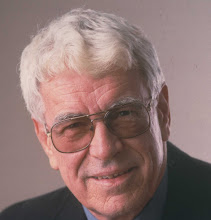July 27, 2008
What is the purpose of the economy?
Most of us would say, I suspect, that the economy exists to make people comfortable and happy. If so, then it's logical to believe that the more the economy grows, the happier people will be. That's why government and industry are always promising greater and faster economic growth.
But what if economic growth doesn't promote happiness? What if economic growth – beyond a certain level – creates unhappiness? Is “more” always better?
That's the question behind Bill McKibben's recent book Deep Economy. An outstanding environmental thinker and writer, McKibben is the author of the landmark book The End of Nature. His new book leads McKibben in some fascinating directions.
Our obsession with economic growth, says McKibben, makes sense for poor people – but not for wealthy ones. For a poor person, “more” means better food, better housing, better clothing, comfort in the winter, access to art and music and learning.
Because this is true for poor people, and was true for most of our ancestors, we assume that it's also true for us. But it's not. Research from a new field called “behavioural economics” shows that once your basic needs are nicely met, greater wealth does not bring greater happiness.
The religion of economic growth, says McKibben, is facing three great challenges. First, economic growth is now producing “more inequality than prosperity, more insecurity than progress.” The US economy has grown enormously in the past 30 years, but the median wage has not grown at all. The bottom 90% -- that's right, 90% -- of US taxpayers actually earned slightly less in 2005 than they did in 1979. All the additional wealth has been captured by the top 10% of taxpayers.
Second, it's become increasingly clear that we're running out of energy, and bumping against the limits of the world's capacity to absorb our wastes. Economic growth may (or, more likely, may not) be giving us a few more dollars of income – but it is also giving us foul air, toxic food, empty oceans and ravaged landscapes. None of that breeds happiness.
Third, says McKibben, we have increasing evidence that happiness is not just a subjective feeling, but a measurable state of mind – happiness shows up as specific kinds of activity in the brain – and the main things that create happiness are not economic in nature. The best predictors of happiness are thing like being healthy, being married, being engaged in one's community. Nothing to do with wealth at all.
In fact, increasing wealth correlates strongly with increasing misery. Every year, the National Opinion Research Council polls Americans and asks whether they are very happy, pretty happy, or not too happy. In 1946, the US was the happiest developed country on earth. Forty years later, it was tenth among 23 nations. The number who say they are “very happy” has slipped steadily since the 1950s. And the same is true in other developed countries such as Japan and the UK. As incomes increase and possessions accumulate, rates of alcoholism, suicide and depression also rise. One report, says McKibben, showed that the *average* American child in 2000 showed higher levels of anxiety than children under psychiatric care in the 1950s.
In short, says McKibben, today's Americans have much more stuff – and much less happiness.
Why? And what's the solution?
First, let's recognize that in developed countries, economic growth is not a solution; it's a problem. Things are already far too big, far too wasteful, and we're no longer in touch with our own lives.
Take food, for instance. It makes no sense to ship food products an average of 1500 miles to our tables, when it's perfectly possible to grow more nutritious, less toxic and better-tasting food close to home. That's the way we produced food in the past, and as energy costs soar, it's probably the way we'll produce it in the future. There will be huge opportunities for agriculture in places like Nova Scotia.
Or take housing. We have ever-larger homes with ever-smaller families in them, in locations that are viable only if gasoline is cheap. Or take electricity, which we produce in big dirty plants and then transmit for thousands of miles, suffering heavy losses along the way. Or take entertainment. Maritimers still know how to produce their own entertainment, but most other regions have forgotten.
The future, McKibben argues, will feature localized economies, short supply lines, more intelligent use of resources, more co-operation, less individualism and much less growth.
We might choose to make such changes because we perceive that our current lifestyles are really wrecking the world. Or we might be forced to make such changes because the rising price of resources, notably energy, simply prevents us from continuing on our unsustainable course.
McKibben's argument is much simpler. Our obsession with individual wealth is making us miserable. Why wouldn't we simply choose to be happier?
-- 30 --
Sunday, August 3, 2008
Subscribe to:
Post Comments (Atom)

No comments:
Post a Comment